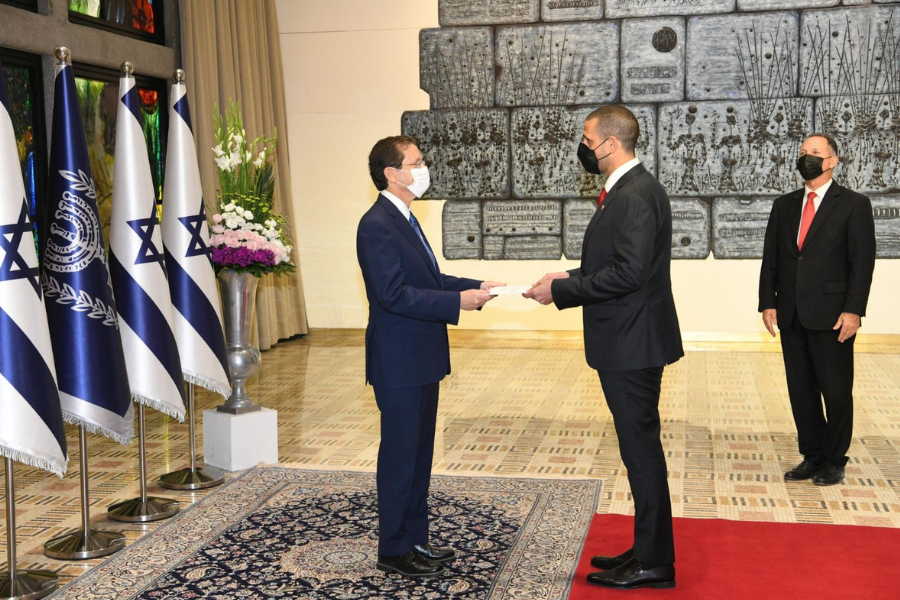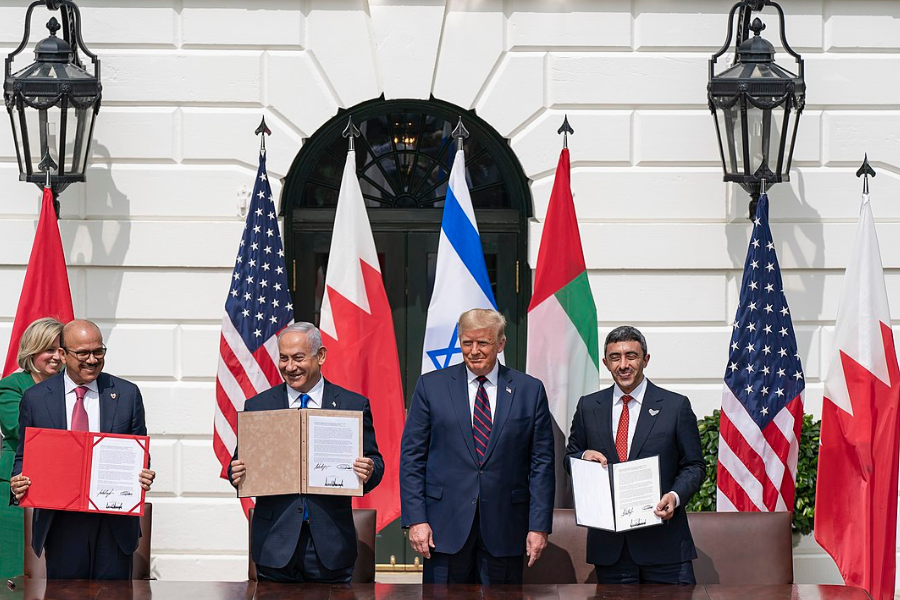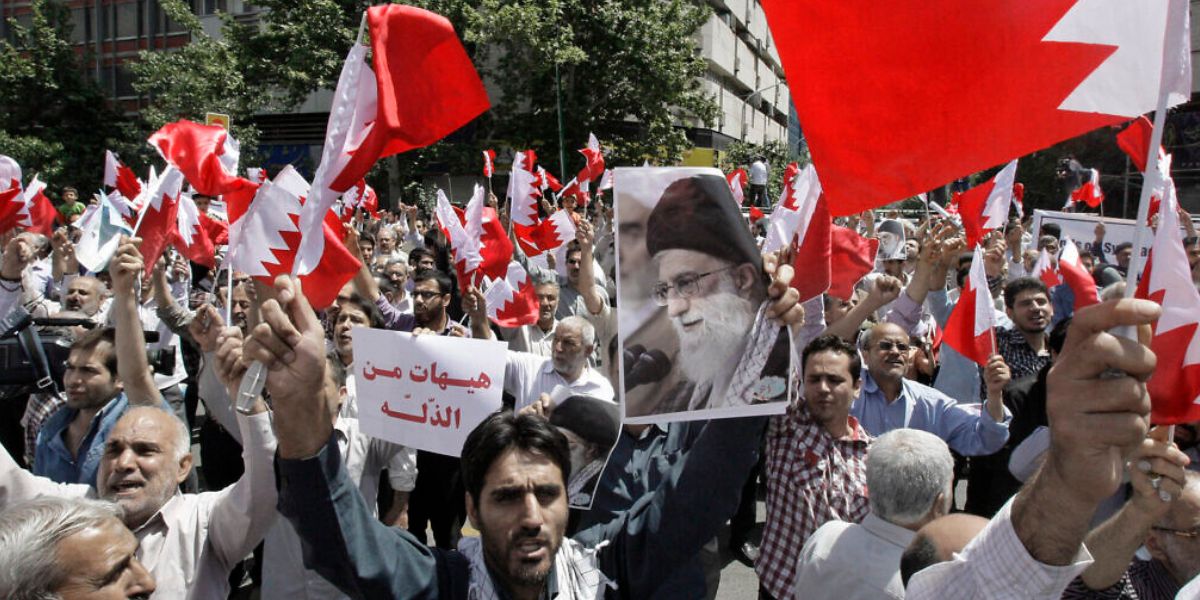The US-brokered Abraham Accords hold a dubious stance within Middle East as Israel flies back ambassador from Bahrain, but assures stable ties.
Bahrain confirmed an earlier statement by the parliament on Thursday by breaking their silence on the rumour that Israel had flown back its ambassador from Manama some time ago. The Israeli Foreign Ministry, however, emphasised the decision was for security purposes and that the relationship is still solid.
An Israeli official claimed that at the start of the conflict, Jerusalem had brought its envoy, Eitan Naeh, and other employees back to Israel. Khaled Al-Jalahma, the country’s envoy to Tel Aviv representing the Shiite majority, had also left for Bahrain.

The majority of the remarks regarding the issue originated from the Israeli Foreign Ministry, emphasising that the country has not received any formal directive from Manama regarding the issue and said, “There has been no recall of ambassadors and no cutting of ties,” and the “relations are stable”.
In contrast, the Bahraini government refuted reports that it was severing its economic connections with Israel; however, there has been a suspension of flights between the two nations for several weeks.
A statement from Bahrain’s National Assembly’s lower chamber called for “more decisions and measures” in response to the Israeli slaughter of the Palestinians, an act that incited anti-Israel sentiment throughout the majority of Arab nations.
The Parliament of Bahrain, a consultative body with no powers on matters of foreign policy, said that their moves” confirmed Bahrain’s historic position in support of the Palestinian cause”.
The pro-Palestinian supporters on the streets of Bahrain with their raging hatred against Israel show that the relations between the two countries have already taken a turn, despite no formal issue being addressed by foreign ministries.
Israel’s International Relations with Arab Countries
The United Arab Emirates is the only Middle East country where Israel still has an ambassador posted. Foreign relations with other countries are on the verge of decline as Israel slowly pulled out envoys from Jordan, Egypt, Morocco, Turkey, and Bahrain.
Compared to the United Arab Emirates, where trade is set to surpass $3 billion this year, Israel and Bahrain have relatively small commercial links, totalling approximately $50 million. Jerusalem showed encouragement before the war that there should be more done to advance business with Bahrain.
Nonetheless, Bahrain has been publicly denouncing Israel for killing nearly 9,000 Palestinians, 60% of whom are women and children, since the beginning of the conflict.
Earlier this week, at the UNGA, Bahrain called for a humanitarian truce in Gaza, condemned the acts of IDF and said, “the catastrophic humanitarian situation and its threat to the lives of more innocent Palestinian civilians, especially children and women, as well as its clear violations of the rules of international humanitarian law and resolutions of international legitimacy.”
The very next day, Bahrain’s Foreign Minister Abdullatif bin Rashid Al-Zayani visited Ramallah.

Bahrain is required to maintain a balanced relationship with Israel as a result of the Abraham Accords, which were negotiated by the US and signed in 2020 that established diplomatic relations between Israel and other Arab nations.
However, even before the conflict, Bahrain’s fellow signatories including the United Arab Emirates and Morocco, had been showing doubts on the accord.
A July poll by the Washington Institute found that in November 2020, 45% of Bahrainis had an average positive opinion of the accord, but by March of this year, that number had slowly dropped to 20%.
Bahrain’s relationship with Israel has been worsening, as Manama regularly denounced incendiary remarks made by Israel’s hard-right government.



